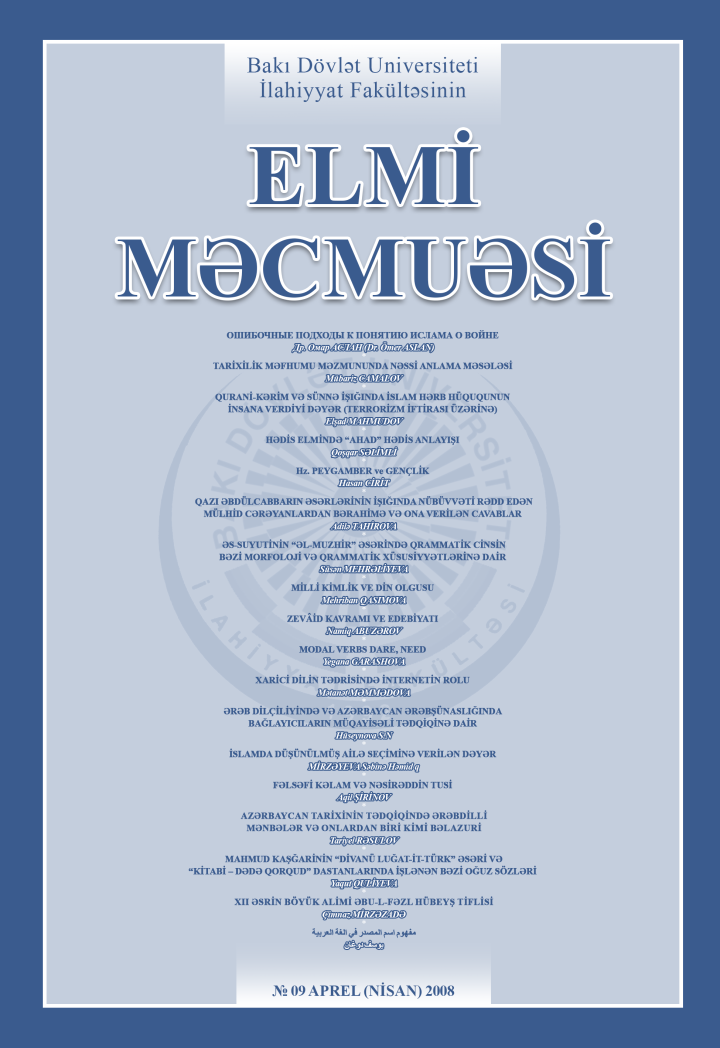İngilis dilində dare, need modal feillərin həm əsas, həm də modal feil kimi işlənmə xüsusiyyətləri
Modal Verbs Dare, Need
Особенности использования в английском языке модальных глаголов dare, need в виде основных и модальных глаголов
Бархударов Л.С. Стелинг Д.А. Грамматика английского языка. М., 1965.
В.М. Каушанская, Р.Л.Ковнер, О.Н.Кожевникова. A. Grammar of the English Language. Baku- 2004.
Ганшина М, Василевская Н, Английская грамматика, М, 1945.
Долгополова З. Модальные глаголы английского языка, М, 1961.
Cyril Miller, A Grammar of modern English for Foreign Students. 1946-1957.
İndir
Makale Bilgileri
- Makale Türü Articles
- Gönderildi Nisan 30, 2008
- Yayınlanmış Nisan 30, 2008
- Sayı № 09(09) Nisan 2008
- Bölüm Articles
